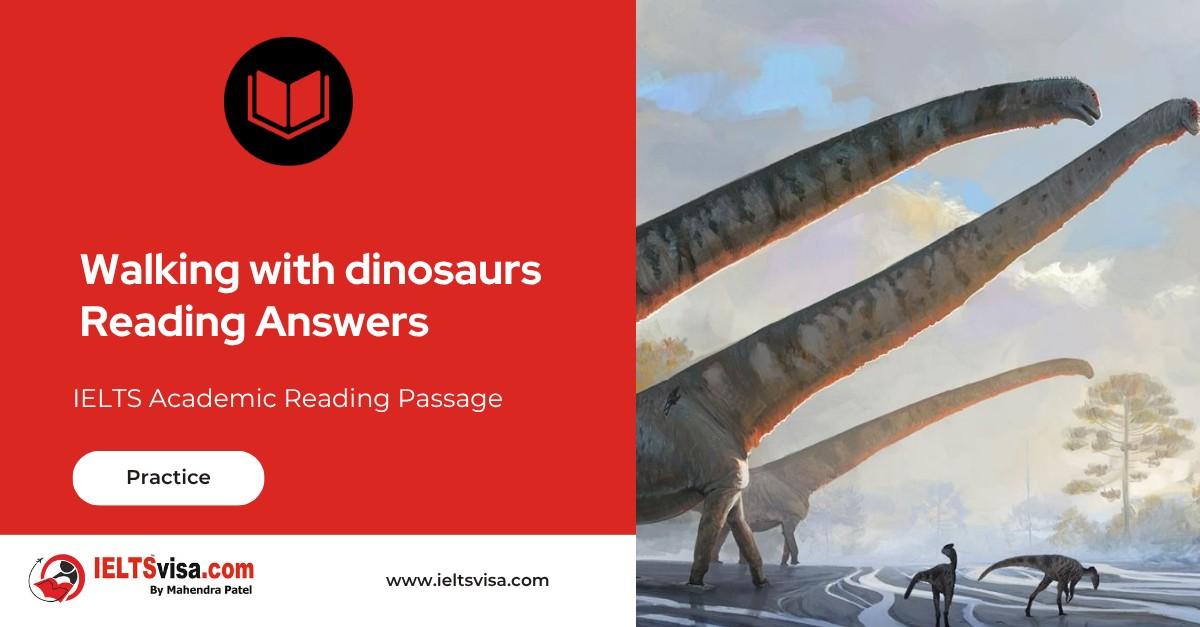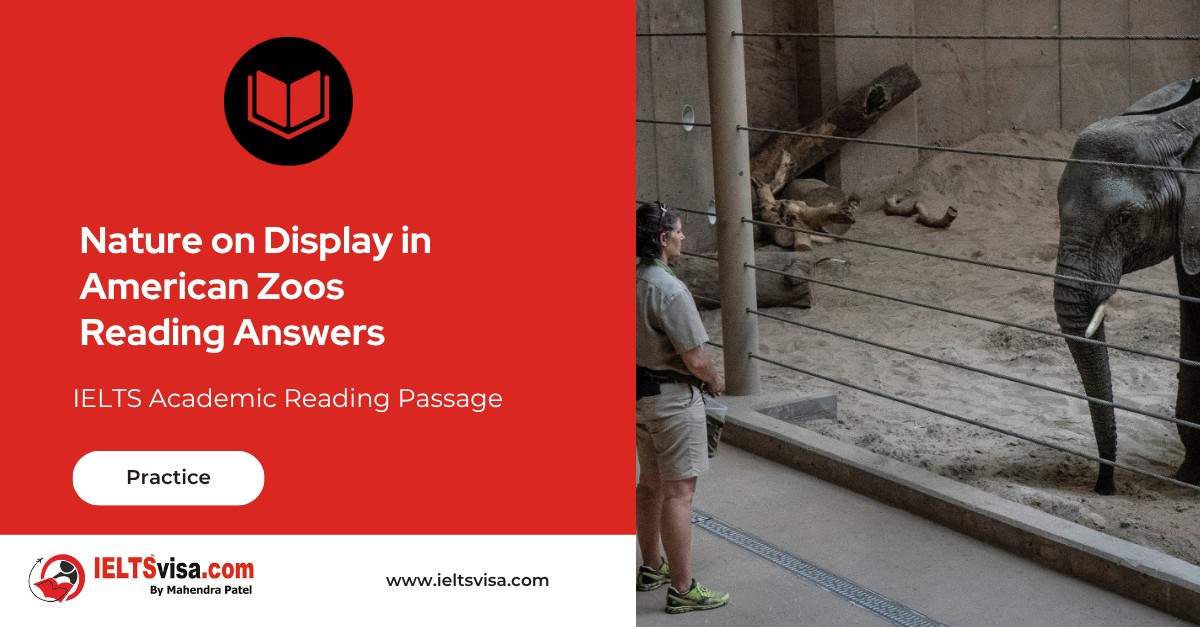A Meat-Eater’s Counter Reading Answers
IELTS Academic Reading Passage
- You might be forgiven sometimes for thinking that vegetarians are somehow superior human beings. In today’s climate of New Age spiritualism, animal rights, and Mother Earth naturalism, confirmed meat-eaters must necessarily be categorised as selfish, environmentally-irresponsible, spiritually-deprived gluttons, whose dietary desire is akin to cannibalism. Each lamb chop, carving of roast beef, or chicken drumstick, signifies a brutal execution of a sentient animal, to whose suffering we remain callously indifferent. Here, I would like to offer some arguments to counter the more extreme claims of the bean-sprout crowd.
- Vegetarians’ first justification is that eating meat is cruel to animals. But when pondering cruelty, it may pay to reflect on how animals fare in the wild. I was recently watching a documentary concerning herbivores on the African plains — where the parasite and insect-tormented herds lead lives of hair-raising and nerve-jittering bolts and dashes as they are constantly stalked by a range of predators. Now, compare this to the animals munching grass in our domestic pastures. Our four-legged friends, watered, well-fed, and attended to when sick, have an essentially stress-free and easy existence.
- But, the vegetarians claim, our slaughterhouses deal out brutal deaths. Brutal? Let us reflect again on that documentary. At one point, it showed an injured zebra, an animal which was quickly spotted by a pack of hyenas. The rest was a display of such cruelty and barbarity that it would make vegetarians think twice before intoning the mantra that ‘nature is good’. Yet being viciously torn to pieces by snapping jaws is more or less the inevitable end of most animals in the wild. It is simply a fact that they do not expire peacefully — they face, instead, brutalising and painful exits. If not becoming another animal’s dinner, they starve to death, or are victims of floods, droughts, and other merciless acts of nature. Compared to this, the relatively quick and clean death that we humans deliver to our cud-chewing cousins must be considered a privileged way to go.
- So, eating meat is not ‘cruel’ — at least, not compared to the natural world, and in fact can even allow the animals in question a certain quality of life that they would almost certainly never enjoy in the wild. But the vegetarians counter that, we, the human species, have a higher awareness, and should avail ourselves of other forms of food, rather than causing the deaths of living creatures. Yet it is worth realising that for tens of thousands of years our species did not have this luxury of choice. Killing animals was essential in staying alive. It is only very recently (in terms of human history), that society has reached a stage of affluence whereby a sufficiently high amount of non-animal nutrition can be obtained, and then only by a privileged and small percentage of the world’s population. Thus, the argument from moral high ground is, at best, an arbitrary one.
- But then the vegetarians come out with their next core claim to superiority — that their diet is healthier. Eating meat is going to have such nasty consequences for the heart, lungs, kidneys, and immune system that we will end up in an early grave. One can agree that this may be true for people who eat too much meat, but is it true for those who eat meat in proportion with an otherwise balanced diet? So many dubious facts and figures are produced to ‘prove’ the vegetarians’ viewpoint that I would recommend a quick read of a well-known book entitled, ‘How to lie with statistics’. This emphasises two foundations for statistical validity: gaining truly representative samples, and eliminating outside variables, both of which the green-eaters ignore.
- It is the second point I would like to look at. The lean and fit, health-conscious vegetarian doing his daily yoga and nightly guitar-strumming will certainly live much longer, on average, than the meat-eating, chain-smoking, beer-swilling, donut-chomping couch potatoes of this world, but not necessarily due (or in any way related) to the former’s abstinence from meat. It is not hard to deduce that those cigarettes, beer, donuts, and sedentary lifestyle are almost certainly responsible for the meat-eater’s diminished life expectancy. For a true comparison, one must compare lean and fit, health-conscious vegetarians with lean and fit, health-conscious non-vegetarians, the latter of whom mix moderate amounts of meat in their diet.
- And this is the point. It is almost impossible in this complex, mixed, and multi-faceted modern society to find enough people who can constitute a truly representative sample, while eliminating the many outside variables. Any assertion that statistics ‘prove’ vegetarians live longer must note that these vegetarians have already made (compared to the average sofa sprouts) a very rigorous and disciplined health-enhancing lifestyle change, which is probably accompanied with many other similar choices, all of which are almost certainly the real cause of any statistical trends. Factor these into the equation, and so far there is no convincing statistical evidence that vegetarianism is better for the health.
Questions 14-19
Reading Passage Two has seven paragraphs, A-G.
Choose the correct heading for Paragraphs B-G from the list of headings.
Write the correct number, i—x, for each answer.
|
List of Headings |
|
|
i |
Animals attack |
|
ii |
Needless killing countered |
|
iii |
Better people? |
|
iv |
A need for statistics |
|
v |
The real cause of longer lives |
|
vi |
Untrustworthy numbers |
|
vii |
Cruel killing countered |
|
viii |
Comparing lives |
|
ix |
Quick efficient killing |
|
x |
The real cause of early deaths |
|
Example |
Answer |
|
Paragraph A |
….iii…. |
|
14…………………. |
Paragraph B |
|
15…………………. |
Paragraph C |
|
16…………………. |
Paragraph D |
|
17…………………. |
Paragraph E |
|
18…………………. |
Paragraph F |
|
19…………………. |
Paragraph G |
Questions 20-23
Complete the table.
Choose NO MORE THAN THREE WORDS from the passage for each answer.
|
|
Domestic Animals |
Wild Animals |
|
Life is |
20 …………………. |
threatened by numerous 21 …………………. |
|
Death is |
22 …………………. |
brutalising and painful. |
|
They |
have some 23 …………………. |
are unlikely to have this easy existence. |
Questions 24-26
Complete the table.
Choose NO MORE THAN TWO WORDS from the passage for each term.
Find two interesting terms used in the text to refer to
|
|
One Term |
Another Term |
|
vegetarians. |
bean-sprout crowd |
24 …………………. |
|
sheep and cattle. |
25 …………………. |
cud-chewing cousins |
|
lazy people. |
couch potatoes |
26 …………………. |

Solution For: A Meat-Eater’s Counter
Reading Answers
| 14 viii | 15 vii |
| 16 ii | 17 vi |
| 18 x | 19 v |
| 20 stress-free and easy | 21 predators |
| 22 quick and clean | 23 quality of life |
| 24 green-eaters | 25 four-legged friends |
| 26 sofa sprouts |
Review and Practice
- Regularly practice with IELTS reading samples and time yourself to get used to the pressure of the exam.
- Review your mistakes to understand where you went wrong and how to avoid similar errors in the future.
Our Books
Master IELTS Speaking Part 1
IELTS Writing Task 1 Book
IELTS Writing Task 2 Book
A Meat-Eater’s Counter Reading Answers Explanation
Comin Soon
Practice IELTS Other Modules
IELTS Listening
The IELTS Listening test assesses how well you can understand spoken English in various contexts. It lasts about 30 minutes and is divided into four sections with a total of 40 questions. The listening tasks become increasingly difficult as the test progresses.
IELTS Academic Reading
The IELTS Academic Reading section assesses your ability to understand and interpret a variety of texts in academic settings. It is designed to evaluate a range of reading skills, including skimming for gist, reading for main ideas, reading for detail, understanding inferences, and recognizing a writer's opinions and arguments.
IELTS Speaking
The IELTS Speaking test assesses your ability to communicate in English on everyday topics. It lasts 11-14 minutes and consists of three parts: introduction, cue card, and a discussion based on the cue card topic.
IELTS General Reading
IELTS General Reading tests your ability to understand and interpret various types of texts. Here are some key areas and types of content you can expect to encounter in the reading section, along with tips for effective preparation.
IELTS Academic Writing Task 1
In IELTS Academic Writing Task 1, you are presented with a visual representation of information, such as graphs, charts, tables, or diagrams, and you are required to summarize, compare, or explain the data in your own words.
IELTS General Writing Task 1
In IELTS General Writing Task 1, you are required to write a letter based on a given situation. The letter can be formal, semi-formal, or informal, depending on the prompt. Here’s a breakdown of the key components to include in your letter
IELTS Academic Writing Task 2
In IELTS Academic Writing Task 2, you are required to write an essay in response to a question or topic. Here’s a guide to help you understand the essential elements of this task
IELTS Exam Tips
To succeed in the IELTS exam, practice regularly, familiarize yourself with the test format, improve your vocabulary, develop time management skills, and take mock tests to build confidence.
Grammer for IELTS
Grammar is the foundation of effective communication in English. Understanding tense usage, subject-verb agreement, and sentence structure enhances clarity and coherence in writing and speaking.
Vocabulary for IELTS
Vocabulary plays a crucial role in the IELTS (International English Language Testing System) exam, especially in the Speaking and Writing sections. Here’s an overview of why vocabulary is important and how it impacts your performance
RECENT IELTS SAMPLES QUESTIONS AND ANSWERS
Walking with dinosaurs
Peter L. Falkingham and his colleagues at Manchester University are developing techniques that...
Money as the Unit of Amount Reading Answers
The most difficult aspect of money to understand is its function as a unit of account. In...
WEATHERING IN THE DESERT
In the deserts, as elsewhere, rocks at the earth's surface are changed by weathering, which...
Nature on Display in American Zoos
The first zoo in the United States opened in Philadelphia in 1874, followed by the Cincinnati...
Can We Prevent the Poles From Melting
Such is our dependence on fossil fuels, and such is the volume of carbon dioxide we have...
Air conditioning the earth reading answers
The circulation of air in the atmosphere is activated by convection, the transference of heat...













